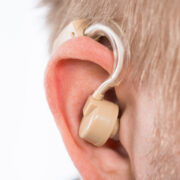Tooth sensitivity can be a common and uncomfortable dental issue that many people experience. It is characterized by a sharp pain or discomfort in the teeth when exposed to certain triggers like hot or cold temperatures. Understanding the root causes of tooth sensitivity can help you take steps to manage and alleviate this condition.
Worn Tooth Enamel
One of the primary reasons for tooth sensitivity is the wearing down of tooth enamel. Tooth enamel is the protective outer layer of the tooth that can become eroded over time due to factors like acidic foods and beverages, aggressive brushing, or teeth grinding. When the enamel wears away, it exposes the sensitive inner layers of the tooth, leading to sensitivity.
Gum Recession
Gum recession, which occurs when the gum tissue pulls back from the tooth, can expose the tooth roots. These roots do not have the same protective enamel covering as the crowns of the teeth, making them more susceptible to sensitivity from hot, cold, or sweet substances.
Tooth Decay
Cavities or tooth decay can also contribute to tooth sensitivity. When the enamel is compromised by decay, it can lead to exposure of the nerves within the tooth, causing sensitivity to hot, cold, or sweet stimuli.
Cracked Teeth
Cracks or fractures in the teeth can create avenues for sensitivity to develop. These cracks can expose the inner layers of the tooth, allowing temperature changes or pressure to trigger pain or discomfort.
Excessive Plaque Build-Up
Accumulation of plaque on the teeth can irritate the gum tissue and lead to inflammation or sensitivity. Proper oral hygiene practices, including regular brushing, flossing, and dental cleanings, can help prevent plaque build-up and reduce the risk of sensitivity.
Acidic Foods and Beverages
Consuming acidic foods and beverages can erode tooth enamel over time, increasing the likelihood of tooth sensitivity. Limiting the intake of acidic foods and drinks and rinsing the mouth with water after consumption can help protect the teeth.
Teeth Grinding
Bruxism, or teeth grinding, can wear down the enamel and lead to sensitivity in the teeth. Wearing a night guard, stress management techniques, and other interventions can help prevent the negative effects of teeth grinding on tooth sensitivity.
Dental Procedures
Some dental procedures, such as teeth whitening treatments, dental cleanings, or the placement of dental fillings, can cause temporary sensitivity in the teeth. This sensitivity usually resolves on its own, but you should consult your dentist if it persists.


















Comments